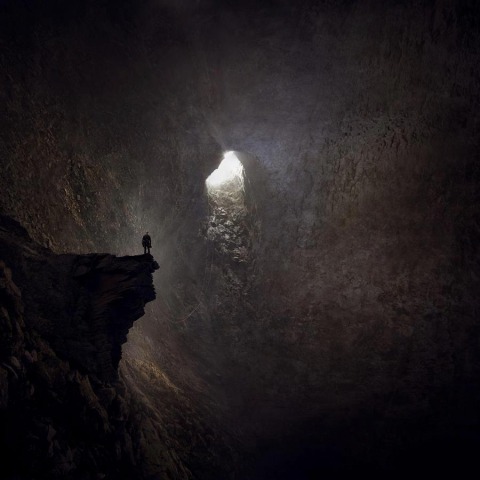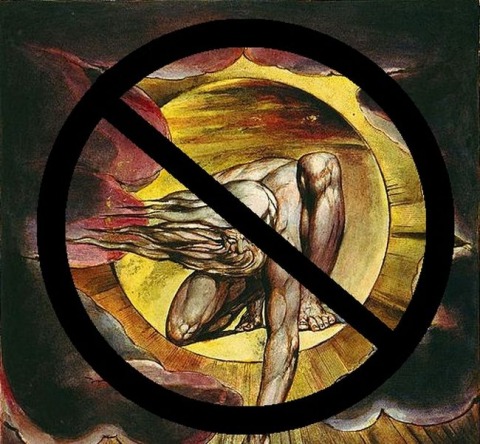
The Underground Thomist
Blog
“It Doesn’t Hurt Anyone”Monday, 04-06-2015
Mondays are student letter days. Query: My friend defines his entire moral code by the statement, "As long as I am not directly hurting anyone other than me, then nothing that I do is wrong.” What do you think? Reply: C. S. Lewis remarked that the inventors of "new moralities" don’t really invent new moralities. They merely accept the bits of the old morality that they like, and ignore the bits of the old morality that they don’t like. For example, an extreme nationalist accepts the parts about our duty to kin but ignores the parts about all men being brothers, and an extreme socialist accepts the parts about our duty to relieve suffering but ignores the parts about justice and good faith. Your friend is doing much the same thing, for the duty to avoid unnecessary harm to others is a genuine part of the moral law. His problem isn’t that it’s wrong; his problem is that he ignores all the other parts. The first problem with throwing out every duty but the avoidance of harm is that it will make him flat. We were made to serve God, not just ourselves. As the Catechism of the Catholic Church explains, we are “not our own beginning, not the masters of adversity, not our own last end.” By casting aside our greatest duty, your friend is also casting aside our greatest joy and privilege. The second problem with his way of life is that it will make him selfish. What would he think of a man who had never lifted a finger to protect his wife, but bragged that he had never beaten her? Of a man who failed to sound the fire alarm, but boasted that he hadn’t set the fire? How about a teacher who had never taught his students a single truth, but preened himself on the fact that he had never taught them a lie? Frankly, I don’t believe that your friend would admire such people any more than you would. But by claiming that his only duty is to avoid unnecessary harm to others, he is training himself to be just like them. The third problem with your friend’s narrow-mindedness is that it will make him stupid. If the only duty he recognizes is not harming others, he won’t have the foggiest idea of what harming others means. This is already happening in the way he limits harm to direct harm, then limits it further to "hurt," to physical harm. Suppose that through reckless driving I were to get myself killed, leaving my wife a widow. Would the fact that the harm of widowhood was indirect make it small? Suppose that I were to corrupt a young female student by seducing her. Would the fact that the harm of corruption was nonphysical make it trivial? We see that every moral duty depends on the other moral duties to flesh it out and complete its meaning. By keeping one duty but throwing out the others, in the end your friend won’t even understand the one that he keeps. The slogan "It can’t be wrong if it doesn’t hurt anyone" first became popular as a rationalization for sex outside marriage. That was two generations ago. Now, after tens of millions of abortions, divorces, fatherless children, sterilization-inducing diseases and broken hearts, perhaps it’s time to reconsider the meaning of "hurt." I don’t know what your friend hopes to justify, but you can be sure he is looking for a way to justify something he really knows is wrong. Tomorrow: Disbelieve in Me
|
Even now! Even now!Sunday, 04-05-2015
If any be a devout lover of God, let him partake with gladness from this fair and radiant feast. If any be a faithful servant, let him enter rejoicing into the joy of his Lord. If any have wearied himself with fasting, let him now enjoy his reward. If any have labored from the first hour, let him receive today his rightful due. If any have come after the third, let him celebrate the feast with thankfulness. If any have come after the sixth, let him not be in doubt, for he will suffer no loss. If any have delayed until the ninth, let him not hesitate but draw near. If any have arrived only at the eleventh, let him not be afraid because he comes so late. For the Master is generous and accepts the last even as the first. He gives rest to him who comes at the eleventh hour in the same was as him who has labored from the first. -- St. John Chrysostom, Paschal Homily Tomorrow: “It Doesn’t Hurt Anyone”
|
Dark Night of the Grad Student SoulSaturday, 04-04-2015
Once upon a time I was approached by a grad student who said he had been thinking about God. This worried him, because he had never thought about God before. He said, "Do you think I'm crazy?" I answered, "No." He was relieved. I asked him what had got him started. It turned out that for months he had been devouring the works of contemporary ethical and political theorists. He explained, "None of these writers says anything about Him. It seems to me they're building their theories on nothing." That’s it. That was his entire reason for beginning to think about God. All these authors had made him think of God not because they spoke of Him, but because they didn’t. God had manifested Himself by the very fact of His apparent absence. Tomorrow: Even Now! Even Now!
|
Why Can’t Johnnie Reason?Friday, 04-03-2015
Why don’t our students learn logical reasoning? Maybe because their teachers don’t either. Case in point: The principle of non-contradiction declares that no meaningful statement can be both true and false in the same sense at the same time – or, in its ontological form, that nothing can both be and not be in the same sense at the same time. If the door is open, then it can’t be the case that it isn’t. That’s not difficult, is it? I can tell you the following story because the persons and places have been forgotten. But I assure you that it is true. Some years ago, a candidate who was being recruited vigorously for a full professorship in one of the social science departments of a certain great research university made the remarkable statement that the principle of non-contradiction was false. This wasn’t an offhand remark. It was a foundational assumption of her work. Let’s think about it. In saying that the principle of non-contradiction was false, she was saying it wasn’t true. In other words, she thought it had to be one or the other -- it couldn’t be both. But that is just what the principle declares to be true of all principles. So in the very act of denying the principle, she relied on it. Why then did she deny it? Her argument was that everything implies its opposite, and reality is incoherent. For good measure she threw in that God is a liar. But if this is the case, then nothing is the case. So it isn’t the case. In private conversation, I tried to explain this to her. So she tried to prove to me that she was right and I was wrong. (Yes, I know.) Her first proof was that “Convex and concave are opposites, but every curve is both convex and concave.” I tried to explain that this was a fallacy of equivocation. There is no inconsistency if a man standing on the inside of the curve says the wall curves toward him, and a woman standing on the other side of the wall says it curves away from her. Her second proof was that black and white are opposites, but if a ball were painted black on one side and white on the other, then it would be both black and white. I tried to explain that she was equivocating again. The ball would be half black and half white, and this description is perfectly consistent. No joy. I suggested to the people who were recruiting her that a person who cannot reason logically is unqualified to teach or do research. One of my colleagues responded that I was behind the times. “Lots of people are working on many-valued logics these days.” That was like answering the statement “The door is open” by saying, “No, the window is closed.” Many-valued logics don’t try to do without the principle of non-contradiction. They try to do without the principle of excluded middle, which is not the same thing. I should have answered that if it is all right to deny the principle of non-contradiction, then his view that the candidate was qualified left my view that she was not qualified still standing. But it probably wouldn’t have made any difference. Oh, I forgot to tell you. She was hired. Tomorrow: Dark Night of the Grad Student Soul
|
Deicide Entails HomicideThursday, 04-02-2015
Some years ago, an essay of mine was chastised by some readers because I had dragged God into it. The incident wouldn’t be interesting except for the fact that I hadn’t dragged God into it. I hadn’t even mentioned Him. I think what set them off was that I had said human nature has a meaningful pattern. At some level they must have recognized that for contingent beings like us to mean anything, we must be borrowing meaning from something that isn’t contingent. Our meaning depends on a First Meaning, of which we are the reflections. Since this First Meaning is what we call God, I didn’t have to mention Him; I had implied Him. To please my chastisers, I would have had to avoid the very suggestion that human nature has any significance. Everyone knows that men offer sacrifices to their gods, but we do not reflect much on the sacrifices they offer to godlessness. Having to deny one’s own meaning is a pretty high price to pay for atheism. And the price gets higher still. For in much the same way that contingent meaning presupposes a First Meaning, we find that beauty presupposes a First Beauty, movement presupposes a First Mover, cause and effect presupposes a First Cause – in fact, being presupposes a First Being. So in order to deny God, it isn’t enough to deny just one of these things. Logically, you must deny all of them. To say that God does not exist, you must finally say nothing and nobody does. Tomorrow: Why Can’t Johnnie Reason?
|
How to Raise PoltroonsWednesday, 04-01-2015
When we teach men to perfect their masculinity through the discipline of chivalry, two kinds of men result. The most spirited accept the discipline and become knights, but the least spirited refuse the discipline and become cads. Impatient with such failures, our age pursues a different ideal. Instead of encouraging men to become knights, it discourages them from becoming men at all. But this works no better; in fact it works worse. Again two kinds of men result, but the pattern is different. The most spirited reject the discipline and become cads, and the least spirited accept it and become poltroons. Thank God for saints and exceptions. Tomorrow: Deicide Entails Homicide
|
What Can I Do? I’m in LoveTuesday, 03-31-2015
Bulletin: My Commentary on ThomasAquinas’s Treatise on Law is back in stock.Considering what a fetish people make these days of being able to do what they want, it’s amazing how helpless they think they are. “I know he’s bad for me, but what can I do? I’m in love.” The best thing is not to get into that situation in the first place. “But I can’t help who I fall in love with.” Of course you can. People fall in love with people they spend time with. So don’t associate with persons who are bad for you and then be surprised when you fall in love. Instead, associate with persons who are good for you. You will eventually fall in love with one of them. Here’s the catch. The sort of person who can be good for you is the sort who is good for other people in general. To attract that kind of person, you have to be one. In fact, even to be attracted to that kind of person, you have to be one. Becoming that kind of person takes a long time. So don’t wait until you meet one. Get started now. Tomorrow: How to Raise Poltroons
|






